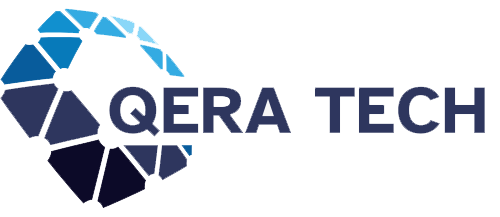For years, Japan has been at the heart of global crypto adoption. From the early days of Mt. Gox to the country’s pioneering regulations, the island nation has always played an outsized role in digital finance. Now, a fresh chapter is unfolding: Nomura Holdings, one of Japan’s financial giants, is making a bold play to lead the next wave of institutional crypto adoption.
Its Switzerland-based subsidiary, Laser Digital, has confirmed that it’s in talks with regulators at Japan’s Financial Services Agency (FSA) to secure a crypto trading license. If approved, Nomura could become one of the first traditional financial titans to offer regulated large-scale trading services for both banks and crypto-focused firms in the country.
This isn’t just another headline—it’s a signal that the line between traditional finance and digital assets is blurring faster than most people realize.
Why Nomura Is Doubling Down on Crypto
Nomura isn’t a newcomer to this space. Over the past few years, the 98-year-old brokerage house has quietly built out its crypto arm through Laser Digital, testing the waters with investments and research. But this latest move is different—it’s about direct trading access, aimed squarely at institutions.
A spokesperson for Laser Digital explained that the firm is in “pre-consultation” talks with regulators, meaning the license application process hasn’t officially begun. Everything hinges on how discussions with the FSA unfold.
If successful, Nomura would be able to run broker-dealer services, giving institutional investors in Japan a regulated gateway to crypto markets. For fund managers, corporations, and family offices who’ve been hesitant to step in due to compliance concerns, this could be the green light they’ve been waiting for.
Institutions Are Hungry for Digital Assets
This push comes at the perfect time. Japanese institutions are no longer just curious about crypto—they’re actively entering the space.
Take Daiwa Securities, for example. Earlier this year, the firm rolled out a lending service that allows clients to borrow yen using Bitcoin or Ethereum as collateral. What once sounded radical—using digital coins as hard collateral in traditional finance—is now becoming a legitimate service offered by mainstream brokerages.
A survey released by Nomura and Laser Digital earlier this year drives the point home. More than half of investment managers surveyed said they expect to allocate a portion of their portfolios to crypto within the next three years. These aren’t hobbyist traders; we’re talking about family offices, corporations, and professional asset managers.
That kind of demand creates a massive opening for licensed players. Nomura knows this—and it’s moving fast to make sure it’s in pole position when the floodgates open.
A Regulatory Climate That’s Finally Warming
Japan’s relationship with crypto has always been complicated. On the one hand, it was one of the first countries to recognize Bitcoin legally back in 2017. On the other, after major exchange hacks like Coincheck in 2018, regulators clamped down with strict rules that pushed many players away.
But times are changing. Authorities are now reforming crypto oversight to align it more closely with securities markets, making the rules clearer and more manageable for big financial firms. There’s even talk of lowering taxes on digital assets, a move that could attract both institutional and retail investors back into the ecosystem.
And then there’s the stablecoin breakthrough. In August, Japan approved its first yen-pegged stablecoin, a symbolic but important step in legitimizing blockchain-based finance. It sends a strong message: crypto isn’t fringe anymore—it’s becoming part of the financial infrastructure.
Data backs up this momentum. A Chainalysis report found that Japan’s crypto activity surged 120% year over year in the 12 months leading up to June, the fastest growth among major Asia-Pacific markets.
Clearly, something is shifting.
Why Laser Digital Matters in Nomura’s Strategy
Laser Digital isn’t just a side project—it’s Nomura’s dedicated bet on digital assets. Based in Switzerland, it was designed from the ground up to experiment in areas where traditional banking rules might be too restrictive.
By applying for a license in Japan, Laser Digital bridges the gap between Nomura’s global expertise and Japan’s local institutional demand. If approved, it could offer services like:
-
Large-scale crypto trading for banks and brokerages.
-
Broker-dealer services tailored to corporations and asset managers.
-
Possibly even structured financial products blending crypto with traditional assets.
This is about more than just new revenue streams. It positions Nomura as a first mover among Japanese megabanks, staking a claim in a market that’s quickly shifting from retail speculation to institutional flows.
What Makes This Different from Past Hype
We’ve seen cycles before—2017’s ICO boom, 2021’s DeFi craze, and endless debates about “mass adoption.” But Nomura’s move feels different for a few reasons:
-
Institutional-first approach – This isn’t about attracting day traders; it’s about providing a compliant path for professional money managers.
-
Regulatory alignment – The FSA’s evolving stance means institutions can operate without the regulatory gray zones that plagued earlier years.
-
Integration with traditional finance – Services like crypto-backed loans and licensed trading platforms show digital assets are being absorbed into mainstream financial systems.
In other words, this isn’t hype for hype’s sake. It’s structural.
The Bigger Picture: Japan’s Role in Global Crypto
Japan is positioning itself as a hub for institutional crypto finance in Asia, competing with Hong Kong and Singapore. By giving traditional firms like Nomura a pathway to regulated trading, the country signals that it wants to lead in shaping the institutional side of this industry.
For global investors, this could mean more liquidity, better infrastructure, and smoother cross-border flows. For Japan itself, it’s a chance to reclaim its early reputation as a crypto pioneer after years of caution.
It also highlights a bigger trend: the shift from retail-driven hype cycles to steady institutional adoption. Just as Wall Street once absorbed commodities, derivatives, and emerging markets into the mainstream, crypto is now following that same arc.
Why This Matters to Everyday Investors
You might be wondering: what does a Nomura crypto trading license mean for someone who isn’t running billions in assets? Quite a lot, actually.
-
Legitimacy filters down – When large institutions enter, retail investors benefit from stronger infrastructure, safer custody, and clearer regulations.
-
Market stability improves – Institutional flows tend to be larger but less speculative than retail, reducing some of the whiplash volatility.
-
New products emerge – Licensed trading could pave the way for ETFs, derivatives, and structured products that everyday investors can access.
If you’ve ever worried about crypto being “too risky” or “too shady,” moves like this directly address those fears. When one of Japan’s largest financial houses pushes forward, it’s hard to argue that crypto is just a passing fad.
Personal Take: A Turning Point in Japan’s Crypto Story
What really stands out to me here isn’t just the size of Nomura’s brand or the scale of institutional interest. It’s the timing.
Crypto has been through a bruising few years—exchange collapses, scams, and regulatory crackdowns. And yet, here we are, with traditional finance not walking away but leaning in harder than ever. That says something.
For Japan, this could be a turning point. Instead of being remembered only for the Mt. Gox collapse or Coincheck hack, the country has a shot at redefining itself as a leader in institutional crypto adoption. Nomura’s move through Laser Digital is one of the clearest signs of that shift.
Here’s what this really means: if you’re watching for signals about the future of money, don’t just look at the price of Bitcoin. Watch the institutions. They’re the ones writing the next chapter.

